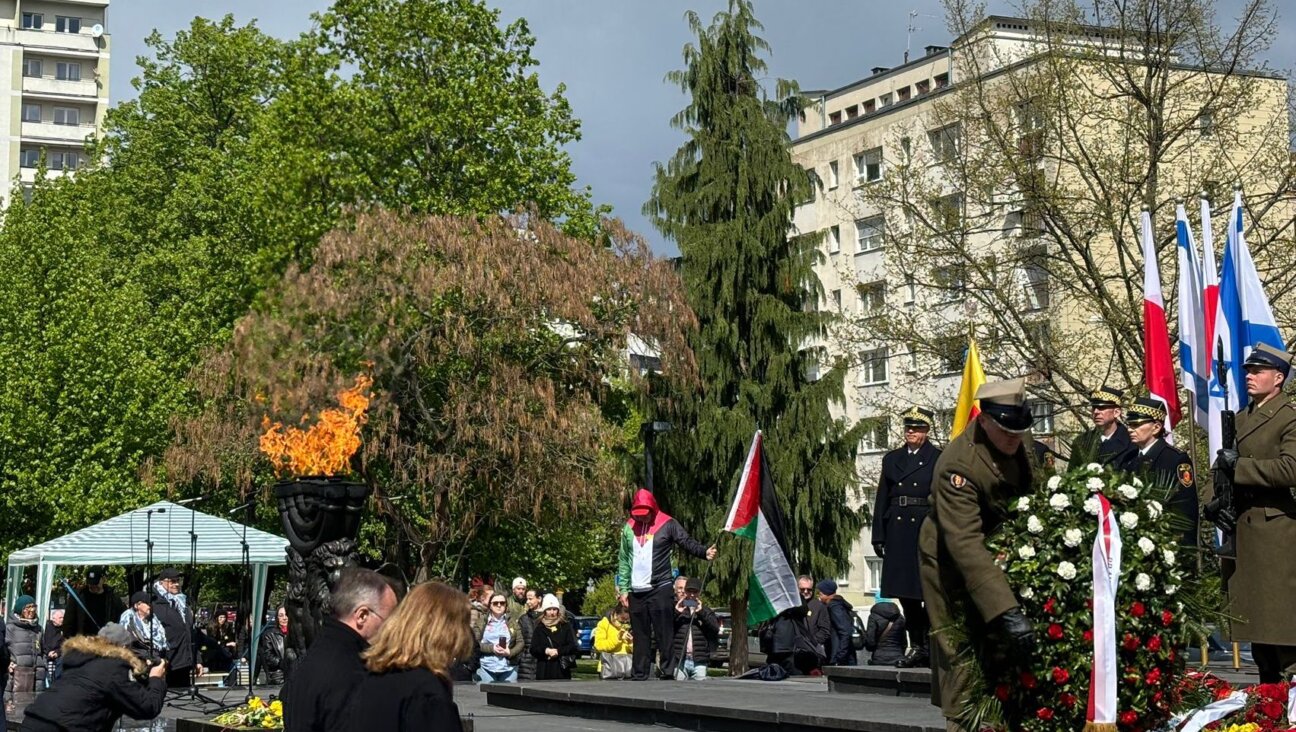Arab States Vow Historic Peace With Israel — Only With Palestinian State

Image by Getty Images
After weeks of heightened unease over the stance of the United States under the new administration of President Donald Trump, Arab leaders reaffirmed on Wednesday their commitment to a two-state solution to the decades-long Arab-Israeli conflict.
They called for a new round of peace talks based on a two-state solution and renewed a 2002 offer of “reconciliation” if Israel quit occupied Arab land and agreed a deal on Palestinian refugees, according to a statement read out after a summit.
Trump rattled Arab and European leaders in February by indicating he was open to a one-state solution, upending a position taken by successive administrations and the international community.
Trump later told Reuters in an interview he liked the concept of a two-state solution but stopped short of reasserting a U.S. commitment to eventual Palestinian statehood, saying he would be “satisfied with whatever makes both parties happy.”
Arab leaders attending a one-day summit beside the Dead Sea did not publicly refer to Trump or his ambiguous statements, but were keen to stress their own continued backing for an independent Palestinian state and also strongly criticized the persistent building of Jewish settlements on occupied territory.
The summit’s host, King Abdullah of Jordan, said the creation of a Palestinian state alongside Israel remained the basis of any comprehensive Arab-Israeli peace deal.
“Israel is continuing to expand settlements and wreck chances of peace … There is no peace or stability in the region without a just and comprehensive solution to the Palestinian cause through a two-state solution,” he said.
ISRAEL CRITICISED
The conference venue is only a few km (miles) from the occupied West Bank where Israeli settlements are clearly visible.
This week, Israeli Prime Minister Benjamin Netanyahu said he was committed to working with Trump to advance peace efforts with the Palestinians, but he also stopped short of reiterating a commitment to a two-state solution.
Palestinian President Mahmoud Abbas criticized Israeli policy in his speech at Wednesday’s summit.
“The Israeli government has since 2009 worked on wrecking the two-state solution by accelerating the tempo of settlements and the confiscation of land,” Abbas told the leaders.
Trump’s Middle East envoy Jason Greenblatt met Abbas before Wednesday’s summit, the second such meeting in two weeks. Trump has also invited Abbas to the White House.
“(Greenblatt) had a lot of queries and we are answering them to complete the picture in their minds and speaking as Arabs in one language,” Abbas said.
He had told Greenblatt that Palestinians remained as firm as ever in their demand for an independent state, he said.
The Palestinians and Arabs want Arab East Jerusalem – which Israel captured in a 1967 war and later annexed in a move not recognized internationally – as the capital of a future state encompassing the Israeli-occupied West Bank and the Gaza Strip.
King Abdullah, whose dynasty has custodianship over Muslim holy sites in Jerusalem, said any unilateral Israeli move to change the status quo in the Dome of the Rock and the Aqsa mosque would have “catastrophic” consequences for the future of the region, inflaming Muslim sentiment.
U.N. Secretary General Antonio Guterres also endorsed a two-state solution, telling summit participants this was the “only path to ensure that Palestinians and Israelis can realize their national aspirations and live in peace, security and dignity.”

I hope you appreciated this article. Before you go, I’d like to ask you to please support the Forward’s award-winning journalism this Passover.
In this age of misinformation, our work is needed like never before. We report on the news that matters most to American Jews, driven by truth, not ideology.
At a time when newsrooms are closing or cutting back, the Forward has removed its paywall. That means for the first time in our 126-year history, Forward journalism is free to everyone, everywhere. With an ongoing war, rising antisemitism, and a flood of disinformation that may affect the upcoming election, we believe that free and open access to Jewish journalism is imperative.
Readers like you make it all possible. Right now, we’re in the middle of our Passover Pledge Drive and we still need 300 people to step up and make a gift to sustain our trustworthy, independent journalism.
Make a gift of any size and become a Forward member today. You’ll support our mission to tell the American Jewish story fully and fairly.
— Rachel Fishman Feddersen, Publisher and CEO
Join our mission to tell the Jewish story fully and fairly.
Only 300 more gifts needed by April 30























